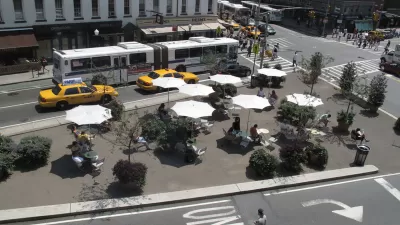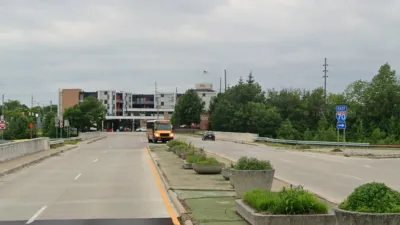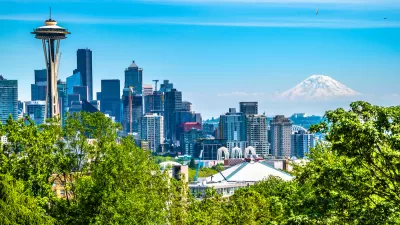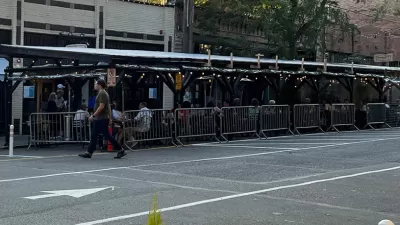Too often, street-side parklets become little more than semi-private patios for the businesses that sponsor them. Pavement parks, replacing dangerous intersections, may be a more worthwhile option.

Parklets are beloved of many urbanists, and Daniel Cohen argues they shouldn't be. Besides their minuscule size, parklets can be off-putting to pedestrians who confuse them for private spaces. "Perhaps it's fair that the parklet paid for by and in front of the ice cream shop is used primarily by their customers, but a semi-public use of public space is only semi-better than private car parking."
Cohen observes that parklets are generally located along commercial arterials, furthering limiting their appeal. "If given the choice to sit within inches of fast-moving cars and their emissions and the choice to sit anywhere else, I'm going to take the latter."
Seattle's First Hill "pavement park" replaces a dangerous intersection in a residential neighborhood. Cohen praises its accessibility, permanence, and significant imprint on the area. The pavement park fills a need for public space and helps calm traffic: factors that, Cohen argues, parklets have failed to address.
FULL STORY: Stop Building Mediocre Parklets, Start Building Pavement Parks

Planetizen Federal Action Tracker
A weekly monitor of how Trump’s orders and actions are impacting planners and planning in America.

Maui's Vacation Rental Debate Turns Ugly
Verbal attacks, misinformation campaigns and fistfights plague a high-stakes debate to convert thousands of vacation rentals into long-term housing.

Restaurant Patios Were a Pandemic Win — Why Were They so Hard to Keep?
Social distancing requirements and changes in travel patterns prompted cities to pilot new uses for street and sidewalk space. Then it got complicated.

In California Battle of Housing vs. Environment, Housing Just Won
A new state law significantly limits the power of CEQA, an environmental review law that served as a powerful tool for blocking new development.

Boulder Eliminates Parking Minimums Citywide
Officials estimate the cost of building a single underground parking space at up to $100,000.

Orange County, Florida Adopts Largest US “Sprawl Repair” Code
The ‘Orange Code’ seeks to rectify decades of sprawl-inducing, car-oriented development.
Urban Design for Planners 1: Software Tools
This six-course series explores essential urban design concepts using open source software and equips planners with the tools they need to participate fully in the urban design process.
Planning for Universal Design
Learn the tools for implementing Universal Design in planning regulations.
Heyer Gruel & Associates PA
JM Goldson LLC
Custer County Colorado
City of Camden Redevelopment Agency
City of Astoria
Transportation Research & Education Center (TREC) at Portland State University
Jefferson Parish Government
Camden Redevelopment Agency
City of Claremont





























